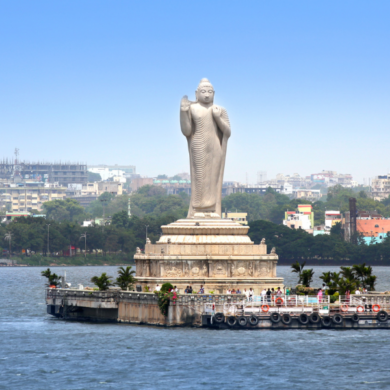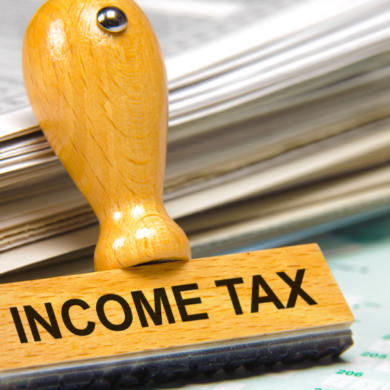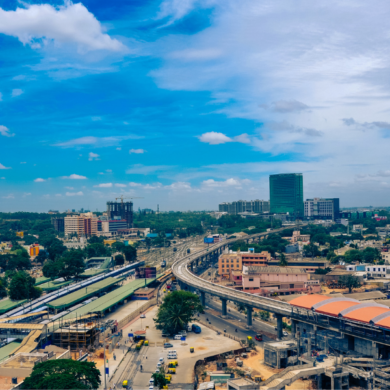IGR (Inspector General of Registration) Karnataka: All You Need to Know
April 22nd, 2025

Inspector General of Registration Karnataka simplifies property transactions through digital tools, transparent processes, and legal safeguards – ensuring secure registration, accurate documentation, and ownership clarity for every property buyer.
With the digital advancements led by Inspector General of Registration Karnataka, real estate transactions in the state have become more transparent, secure, and user-friendly. Whether you are purchasing your first home or managing inherited assets, understanding how the system works can save you both time and money.
This blog provides a complete overview of the services, legal procedures, and online tools that simplify property registration Karnataka. From checking encumbrance certificates to calculating stamp duty, everything you need to know is explained step by step.
Table of Contents
Why Understanding IGR Karnataka is Important
Understanding how property-related documentation is governed in the state ensures smoother, legally sound transaction process for investors, homebuyers, developers and real estate consultants. Here is why it is important to gain clarity on Inspector General of Registration Karnataka:
- Safeguards Your Investment: Learning about this process helps you avoid disputes related to ownership, boundary demarcation, or incomplete documentation – especially during resale or inheritance
- Enables Digital Efficiency: With services shifting online, understanding how to navigate the IGR portal empowers you to check status, download documents, and avoid unnecessary visits to the Sub-registrar’s Office
- Prevents Legal Hassles: By verifying the property’s legal status, you can identify encumbrances or liabilities well in advance. Encumbrance Certificate Karnataka becomes your go-to tool, to ensure a clean title.
- Helps You Stay Compliant: IGR governs mandatory steps for registration and documentation. Being aware of these timelines and penalties helps you remain compliant and avoid delays.
- Optimises Financial Planning: Knowing how Karnataka stamp duty is calculated and which concessions are applicable in special cases, can empower you to plan your total investment better.
What is IGR Karnataka?
Inspector General of Registration Karnataka is the apex authority responsible for overseeing and regulating property documentation and stamp duty administration across the state. Operating under the Department of Stamps and Registration, IGR ensures that property transactions are legally recorded, transparent, and compliant with government regulations.
Its primary role is to facilitate and streamline property registration Karnataka, ensuring that ownership rights are accurately recorded and protected. From managing Sub-registrar’s Offices to enabling digital access through portals like Kaveri online services, the department plays a vital role in maintaining public trust and reducing property-related disputes.
Functions & Responsibilities of IGR Karnataka
Inspector General of Registration Karnataka plays a foundational role in safeguarding legal property transactions and ensuring proper documentation through state-wide registration services, both offline and online. Here are the key functions and responsibilities of the department:
- Administers Property Registration Across Karnataka: The department regulates all aspects of property registration, ensuring every transaction is recorded lawfully and ownership is clearly established
- Manages Stamp Duty and Valuation: It oversees the assessment and collection of stamp duty based on property market value, enabling the government to maintain transparency in revenue generation
- Maintains and Updates Public Records: IGR Karnataka ensures that registered documents such as sale deeds, gift deeds, and partition deeds are securely stored and made accessible for verification and future transactions
- Monitors Sub-registrar’s Offices: The department supervises these offices across the state to ensure uniform service standards, timely registration, and legal compliance
- Facilitates Digital Access through Portals: By operating services such as Kaveri online platform, the department enables document verification, Encumbrance Certificate downloads, and stamp duty calculation from anywhere
Key Services Provided by IGR Karnataka
From verifying property ownership to calculating duty charges, Inspector General of Registration Karnataka offers a wide suite of services designed to make property transactions more secure, accessible, and legally compliant for citizens across the state. Here are the key services provided by the department.
- Online Property Document Registration: Individuals can register sale deeds, gift deeds, lease agreements, and more through the official portal – minimising manual processes and ensuring faster turnarounds
- Calculation of Karnataka Stamp Duty: The department provides digital tools to help you estimate these charges, based on property value, location, and transaction type – ensuring transparency before registration
- Issuance of Encumbrance Certificate Karnataka: You can apply for and download your Encumbrance Certificate Karnataka online, to verify that the property is free from legal liabilities or financial encumbrances
- Guidance Value Search and Market Rate Access: The portal helps users find the government’s guideline value for properties in different areas – which is important for determining duty and sale pricing
- Certified Copies and Document Retrieval: Users can request certified copies of previously registered documents for legal, financial, or resale purposes, directly through the Kaveri online services portal
- Grievance Redressal and Helpline Support: You can report discrepancies or delays to the dedicated grievance cell, even as helpline numbers provide timely support for resolving registration-related queries
Property Registration Karnataka: Step-by-Step Guide
Completing the registration through Kaveri online services portal enhances efficiency, transparency, and legal compliance. Here is a detailed guide to help you through each step.
- Step 1: Prepare the Required Documents
Gather all documents before initiating the online process:
Sale deed / agreement (drafted as per the transaction)
Encumbrance Certificate Karnataka
Khata certificate and extract
Latest tax-paid receipt
Aadhaar or any valid government-issued IDs of buyer and seller
PAN card (if applicable)
Passport-sized photos - Step 2: Visit Kaveri Online Services Portal
Go to Kaveri Portal
Click Register (on top-right), if using for the first time
Log in using your registered credentials - Step 3: Calculate Stamp Duty and Registration Fee
From the homepage, select ‘Calculator’ > ‘Stamp Duty & Registration Fee’
Enter property details such as type, location (district, taluk, village), usage (residential / commercial), and market value
The system will auto-calculate applicable stamp duty and registration charges - Step 4: Generate Challan and Make Payment
Navigate to ‘Challan Generation’ section
Enter the property and buyer / seller details
Choose the payment method (online / netbanking)
Save or print the challan receipt after successful payment - Step 5: Schedule Your Appointment
Go to ‘Online Appointment Booking’
Select the appropriate SRO (Sub-registrar’s Office) as per property jurisdiction
Choose date and time slot available for registration
Note the appointment ID for reference - Step 6: Visit the Sub-Registrar’s Office
On the appointment day:
Carry all original documents, payment receipts, and IDs
Complete biometric verification and document signing
Submit documents for verification - Step 7: Collect Acknowledgement and Track Status
After submission, collect the acknowledgement slip
Use the ‘Know Your Document’ service to track registration status - Step 8: Download Registered Sale Deed
Log in again to Kaveri online services
Click on ‘Download Registered Document’
Enter document number and registration date to retrieve a digitally signed copy
Stamp Duty & Registration Charges in Karnataka (2025)
Karnataka stamp duty is calculated based on the property’s market value or the government’s guidance value – whichever is higher. The following rates apply:
Note: These are base rates. Additional cess or surcharges may apply based on jurisdiction and property type.
Read More: All You Need to Know About Kaveri Online Services Portal, Karnataka
How the Charges are Calculated
The government uses the guidance value (also known as circle rate) of the location to assess the minimum market value. If your declared transaction value is lower than this, the stamp duty is calculated based on the higher guidance value. For example, if the flat is sold at ₹50 lakh but the guidance value is ₹55 lakh, your stamp duty will be calculated basis ₹55 lakh.
Customer Benefits and Exemptions
- Women Property Owners: Karnataka offers ₹5000 concession on stamp duty, when a property is registered exclusively in a woman’s name
- Gift Deeds Within Family: Minimal duty of ₹500 plus ₹100 registration fee applies, while transferring property among immediate family members
- Rural and Welfare Housing: Reduced duty rates are extended to beneficiaries under approved government housing schemes
Step-by-Step Guide to Check Encumbrance Certificate Online in Karnataka
- Visit the Kaveri Online Services Portal
- Login to Kaveri Online Portal
- Navigate to ‘Online EC’ Section
- Select ‘View Encumbrance Certificate’
- Fill up the Property Details
- Choose the district, Sub-registrar’s Office, and property type
- Enter property boundaries, survey number, and document number if available
- Select the period for which you want to generate the certificate (up to 30 years)
- View and download the EC
- Click ‘Search’
- If the property has no encumbrances, it will show a nil EC
- Download and save the digitally signed certificate for legal use
Common Challenges and How to Overcome Them
Even with digital platforms in place, some buyers may face roadblocks during property registration Karnataka. Being aware of these challenges, and knowing how to resolve them, can save you time and money. Here are common issues and how to overcome them:
- Incorrect Property Details in Sale Deed: Always verify boundaries, dimensions, and survey numbers before finalising the draft
- Mismatch in Ownership Records: Use Encumbrance Certificate Karnataka to check if the seller holds clear, legal title over the property
- Stamp Duty Miscalculations: Use the online calculator on Kaveri services portal to get accurate estimates before making the payment
- Incomplete Tax Records or Pending Dues: Settle all outstanding property taxes and carry latest receipts to avoid processing delays
Contact Details & Office Locations of IGR Karnataka
Head Office – Inspector General of Registration Karnataka
Address:
Inspector General of Registration and Commissioner of Stamps
3rd Floor, KHB Complex, Cauvery Bhavan,
KG Road, Bengaluru – 560009, Karnataka
Phone: 08022220984 / 08022220985
Email: igr-ka@gov.in
Conclusion
Navigating property transactions in the state is now easier, with the structured, transparent system set by the IGR department. From property registration Karnataka to downloading your Encumbrance Certificate Karnataka, every step can be managed online on the Kaveri services portal.
By understanding stamp duty rules and preparing documents in advance, you can complete the registration efficiently – whether buying your first home or transferring ownership within the family.
FAQs
1. What is the role of IGR Karnataka?
The role of IGR Karnataka is to regulate property registration, manage stamp duty collection, and ensure legal compliance across the state.
2. How can I register my property in Karnataka?
You can register your property in Karnataka through the Kaveri online services portal, and complete the process at your jurisdictional Sub-registrar’s Office.
3. What are the stamp duty and registration charges in Karnataka?
Karnataka stamp duty ranges from 2% to 5% based on the property value, while registration charges are fixed at 1%.
4. How can I check my property’s Encumbrance Certificate (EC) online?
You can check and download your property’s EC online, through the ‘View Encumbrance Certificate’ option on Kaveri online services portal.
5. What is Kaveri online services?
Kaveri online services is the official platform that provides access to property registration, stamp duty calculation, and document verification in Karnataka.
6. Can I calculate Karnataka stamp duty and registration fees online?
Yes, you can calculate Karnataka stamp duty and registration fees online, using the built-in calculator on Kaveri portal.
7. Which documents are required for property registration Karnataka?
Documents required for property registration Karnataka are sale deed, EC, Khata extract, tax receipts, ID proofs, PAN card, and passport-sized photographs.
8. How long does property registration take in Karnataka?
Property registration in Karnataka may happen in a few hours, on the day of your appointment at Sub-registrar’s Office – provided all documents are in order and both parties are present.
9. What happens if I do not register my property?
If you do not register your property, it will not gain legal recognition, and can lead to disputes, financial losses, or denial of loan and resale rights.
10. How can I contact the IGR Karnataka office?
You can reach the IGR Karnataka office at 08022220984 / 08022220985 or igr-ka@gov.in









